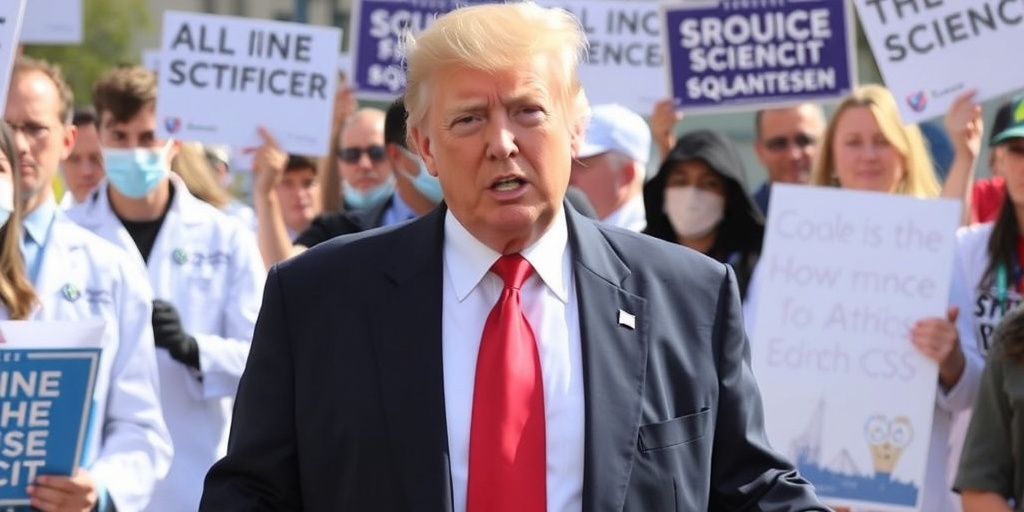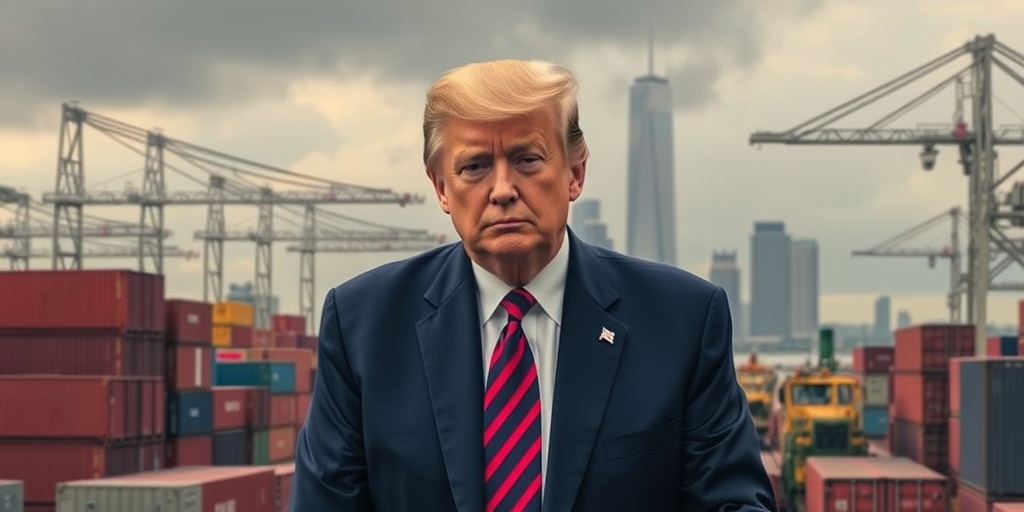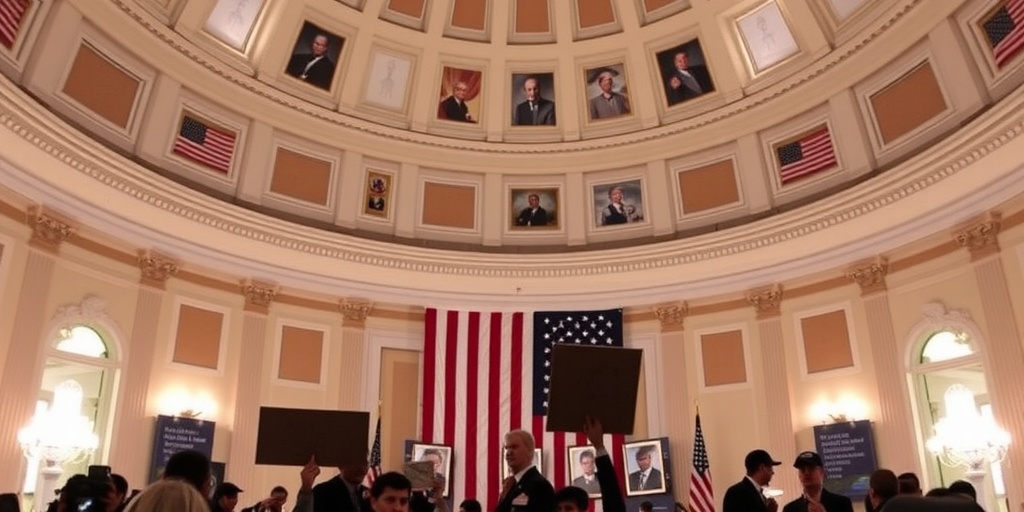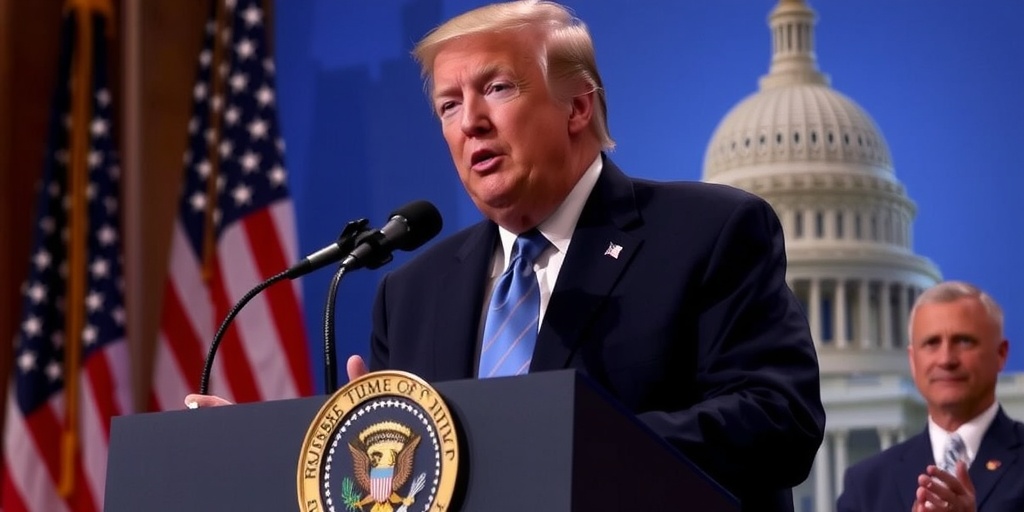Now Reading: Trump’s Legal Troubles Force Law Firms into a Dilemma
-
01
Trump’s Legal Troubles Force Law Firms into a Dilemma
Trump’s Legal Troubles Force Law Firms into a Dilemma
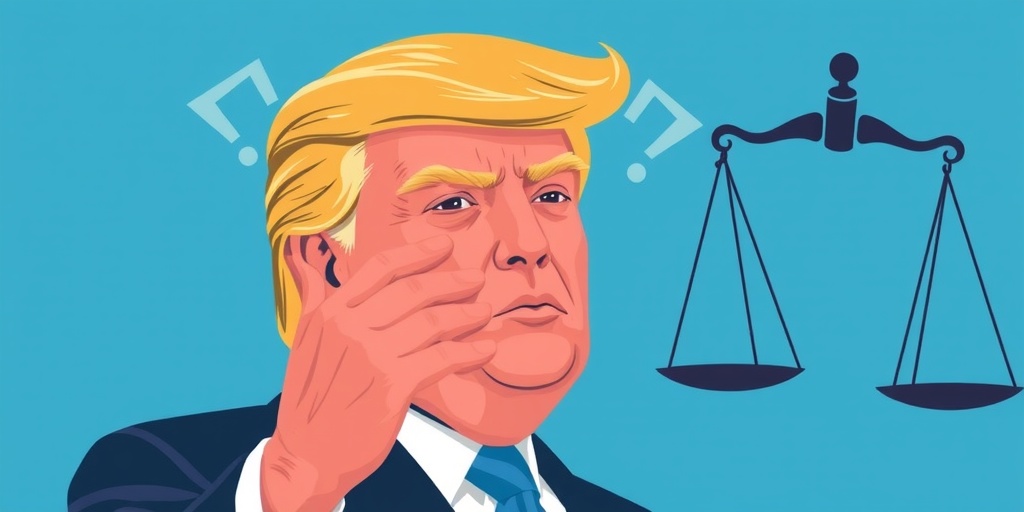
Title: Backlash at Willkie Farr & Gallagher Following Deal with Trump Administration
Last week, Willkie Farr & Gallagher made headlines after entering into a significant agreement with the Trump administration, committing to provide $100 million in legal services to causes supported by the former president. However, this decision has sparked considerable controversy within the firm and beyond, revealing the complex dynamics law firms face when navigating the political landscape under President Trump’s influence.
The fallout from the deal has been swift and intense. Prominent partners at Willkie, including Doug Emhoff, who is married to former Vice President Kamala Harris, have publicly criticized the agreement. Emhoff’s denouncement of the deal highlights the internal dissent brewing within the firm, as concerns grow over the potential long-term implications of capitulating to the White House. Lawmakers from the Democratic Party have also taken note, pressuring Willkie for clarification about the deal’s specifics and raising alarms about what they perceive as unlawful coercion from the Trump administration.
Joseph T. Baio, Willkie’s longest-serving attorney, opted to resign rather than remain at a firm that he believes has compromised its integrity. In an email addressed to the firm’s executive committee, Baio stated that he wished to take a stand against what he described as "governmental tyranny, unconstitutional decrees, and social injustice.” His departure is indicative of a broader discontent within the firm, as associates and partners grapple with the tension between financial pressures and ethical considerations. Baio’s resignation came after nearly 50 years at Willkie, marking a significant moment in the firm’s history.
The negotiations leading to the controversial deal illustrate a new model of operation for Trump’s administration, aiming to exert control over law firms by encouraging them to make concessions before issuing executive orders. According to reports, Willkie was warned in late March that it could be the next target on Trump’s list, initiating discussions that culminated in the agreement. Firm chairman Thomas M. Cerabino was cited as someone who directly engaged with Trump’s inner circle, including his adviser Boris Epshteyn, who suggested that a deal would be advantageous for both parties.
In a challenging environment for law firms, many are finding themselves between a rock and a hard place. On the one hand, resisting Trump’s demands could result in perilous executive orders targeting their business operations; on the other, compliance risks damaging their reputation and integrity. Emails from the firm’s executive committee acknowledged the difficult position they faced, suggesting the agreement was a necessary measure to protect the rights of both the firm and its clients.
Other law firms have found themselves in similar predicaments, with Cadwalader, Wickersham & Taft being contacted by Trump’s advisers but as yet not reaching an agreement. Conversely, firms like Milbank and Skadden have also opted to capitulate, agreeing to similar arrangements with the administration. The alternative course, as experienced by firms including Perkins Coie and Jenner & Block, has been both damaging and costly due to executive orders that have limited representation opportunities and access to government resources.
White House press secretary Karoline Leavitt commented on the trend, suggesting that "Big Law continues to bend the knee to President Trump" due to past misjudgments, claiming that Trump’s agenda, particularly the “America First” policy, would benefit from these legal concessions. In contrast, the firm’s leadership has faced mounting pressure and backlash. While some partners, such as Emhoff, have voiced strong criticism, others have chosen to stay, creating divisions within the firm about the best course of action.
Democrats in Congress express significant concern regarding the implications of such deals. In letters directed toward Willkie’s executive team, top lawmakers emphasized the need for transparency about the nature of their agreement with the administration, suggesting that these actions pose a direct threat to constitutional rights and rule of law.
Moreover, the motivations behind targeting Willkie specifically appear connected to its previous involvement with high-profile clients and cases that scrutinized Trump directly, particularly those related to the Jan. 6 Capitol riots. As legal firms assess their strategy in light of potential backlash, the ongoing scrutiny and criticism from both within and outside the firm will continue to shape the narrative of legal practice in a politically charged environment.
As Willkie grapples with the consequences of its agreement, it finds itself at a critical juncture that reflects broader tensions within the legal community about the role of ethics in business under political pressure. The decisions made within firm walls may ripple through the legal sector, influencing how law firms navigate the increasingly intersectional relationship between politics and legal practice. In the coming days and weeks, the full impact of their decision will continue to unfold, creating further discussions on the future of legal representation in the era of Trump.
Stay Informed With the Latest & Most Important News
Previous Post
Next Post
-
 01New technology breakthrough has everyone talking right now
01New technology breakthrough has everyone talking right now -
 02Unbelievable life hack everyone needs to try today
02Unbelievable life hack everyone needs to try today -
 03Fascinating discovery found buried deep beneath the ocean
03Fascinating discovery found buried deep beneath the ocean -
 04Man invents genius device that solves everyday problems
04Man invents genius device that solves everyday problems -
 05Shocking discovery that changes what we know forever
05Shocking discovery that changes what we know forever -
 06Internet goes wild over celebrity’s unexpected fashion choice
06Internet goes wild over celebrity’s unexpected fashion choice -
 07Rare animal sighting stuns scientists and wildlife lovers
07Rare animal sighting stuns scientists and wildlife lovers













